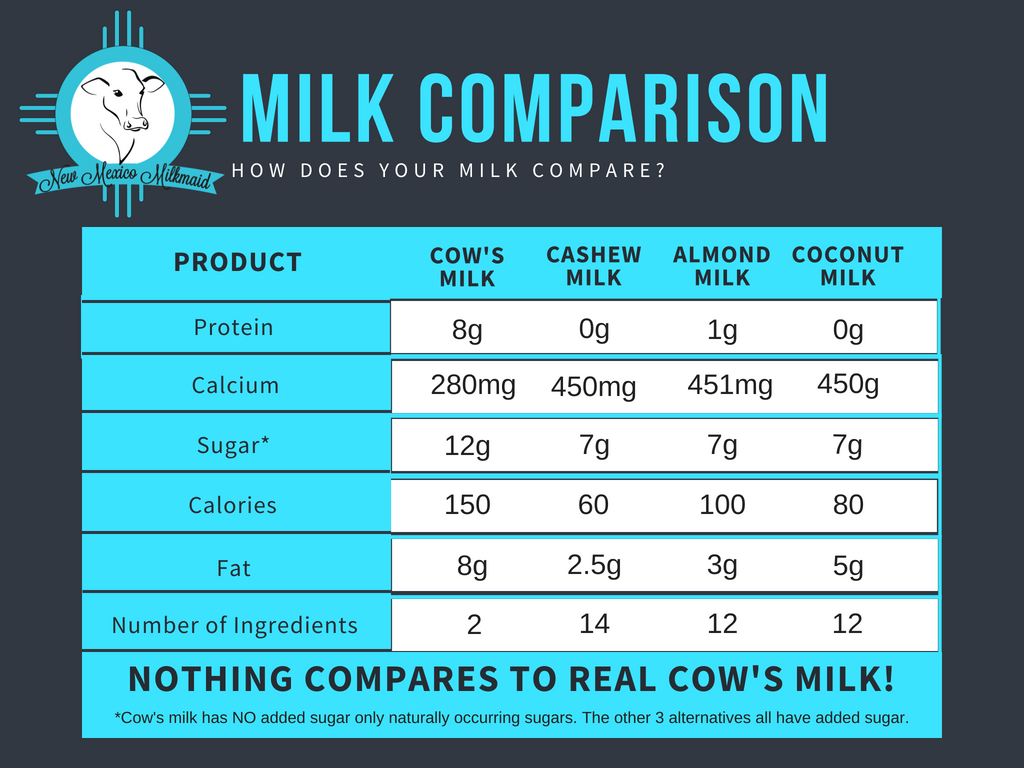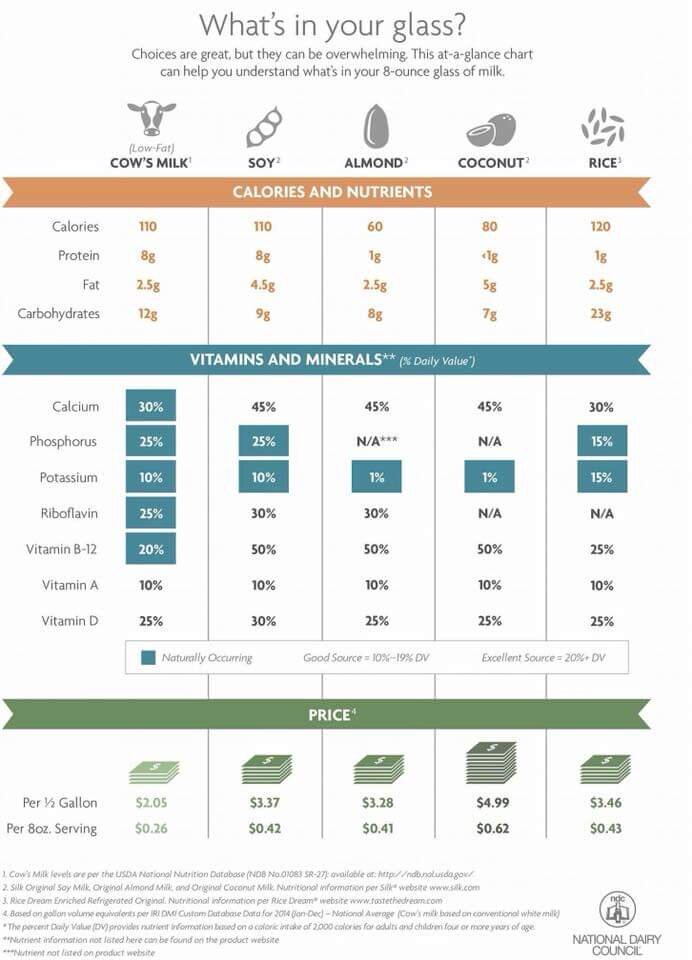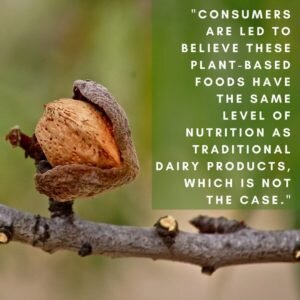Milk vs the Alternatives: Why the FDA's Definition of Milk Matters
Maybe you have seen in the news recently the dispute between the labeling of milk vs plant-based and nut milk alternatives. Dairy farmers are fighting for accurate labeling of products calling themselves milk. Meaning products that do not come from a lactating animal cannot call themselves milk. The FDA is finally considering the enforcement of their regulations on the use of the word milk in labeling. Currently, the United States is the only country in the world that does NOT enforce this definition of milk. It seems so clear-cut to me that this would be helpful for the consumers. But we, as dairy farmers, have been receiving a lot of pushback. I have read that the "big bad" dairy farmers are "throwing a fit" that nut products are calling themselves milk. Damn straight I am throwing a fit that other products are calling themselves milk. Dairy farmers have worked hard to produce a product that is one of the healthiest and safest in the world. We have spent years promoting our product and building a reputation for milk that people know as safe and healthy. And I think it is unfair to not only us but to the consumers for products to put the word milk on their packaging especially when their products do not offer the same nutritional value.
It seems so clear-cut to me that this would be helpful for the consumers. But we, as dairy farmers, have been receiving a lot of pushback. I have read that the "big bad" dairy farmers are "throwing a fit" that nut products are calling themselves milk. Damn straight I am throwing a fit that other products are calling themselves milk. Dairy farmers have worked hard to produce a product that is one of the healthiest and safest in the world. We have spent years promoting our product and building a reputation for milk that people know as safe and healthy. And I think it is unfair to not only us but to the consumers for products to put the word milk on their packaging especially when their products do not offer the same nutritional value.
Real Milk vs the Alternatives
When consumers see the word "milk", many are led to believe that the product is a suitable replacement for milk. But we have seen study after study that proves these alternatives are not replacements for real milk especially when it comes to the diets of young children. So yes, it makes me angry that companies piggyback off our hard-earned reputation of milk as a nutrient powerhouse to promote their products. In other countries, these alternatives are called "nut beverages" because they are more similar to a juice or beverage than to real cow's milk. People purchase milk knowing its nutritional benefits such as high-quality protein and calcium. They know that there is no added sugar and that it is not a processed food. Then they see a plant-based product that has the word milk on it and assume it has similar nutritional value and quality. When that couldn't be further from the truth. Those products are lacking almost all of the nutritional benefits, many have added sugar and most are extremely processed (ie Popular Almondmilk brand has only 1g of protein, 7 g of sugar, 12 ingredients and only 2% of it is actually almonds). Dr. Tanya Altmann does a great job in this clip of explaining why labeling is important and why parents should be cautious about replacing cow's milk in their children's diet with these beverages.Also, the people who are slamming us for wanting clear and precise labeling on milk and alternative products, are the same people who want labels for GMO/Non-GMO, better standards for words like natural and organic. But when we, the dairy farmers, ask for the same respect for our milk, we are called crazy. What's crazy is calling a product produced from sugar and nuts, milk because I have never seen an almond lactate.
People purchase milk knowing its nutritional benefits such as high-quality protein and calcium. They know that there is no added sugar and that it is not a processed food. Then they see a plant-based product that has the word milk on it and assume it has similar nutritional value and quality. When that couldn't be further from the truth. Those products are lacking almost all of the nutritional benefits, many have added sugar and most are extremely processed (ie Popular Almondmilk brand has only 1g of protein, 7 g of sugar, 12 ingredients and only 2% of it is actually almonds). Dr. Tanya Altmann does a great job in this clip of explaining why labeling is important and why parents should be cautious about replacing cow's milk in their children's diet with these beverages.Also, the people who are slamming us for wanting clear and precise labeling on milk and alternative products, are the same people who want labels for GMO/Non-GMO, better standards for words like natural and organic. But when we, the dairy farmers, ask for the same respect for our milk, we are called crazy. What's crazy is calling a product produced from sugar and nuts, milk because I have never seen an almond lactate.  **I have nothing against almond farmers or other plant-based farmers. I love almonds! We eat them by the handfuls in our house. But I do believe we need accurate labeling of products.**Udderly in love with REAL milk,New Mexico Milkmaid
**I have nothing against almond farmers or other plant-based farmers. I love almonds! We eat them by the handfuls in our house. But I do believe we need accurate labeling of products.**Udderly in love with REAL milk,New Mexico Milkmaid